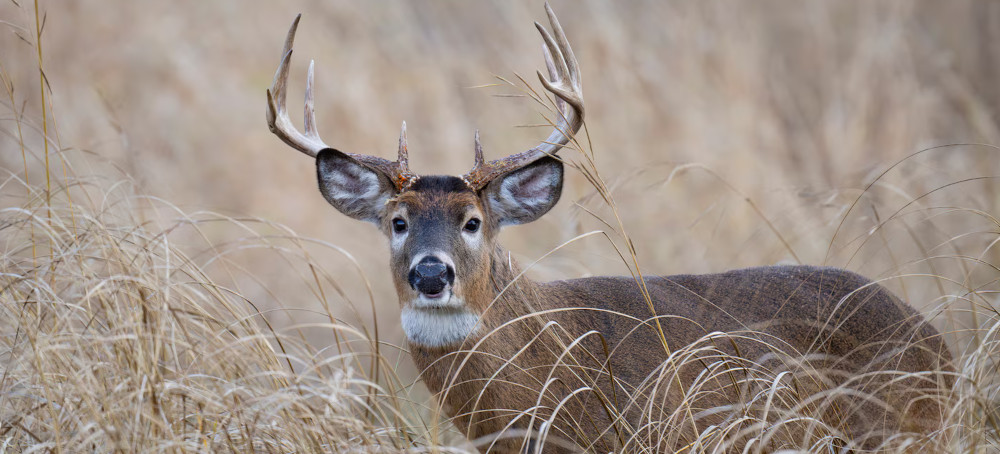As Climate Change Pushes Deer North, Other Animals May Lose Out
Erin Blakemore The Washington Post White-tailed deer, like this one in Canada, are moving ever northward in North America. (photo: iStock)
White-tailed deer, like this one in Canada, are moving ever northward in North America. (photo: iStock)
Researchers say woodland caribou could be at risk.
The study used 300 remote cameras across the northern Alberta-Saskatchewan border, collecting nearly 80,000 images of white-tailed deer from 2017 to 2021 and using the images to estimate white-tailed deer density in the region over time.
Researchers chose the area because it contains a variety of landscapes altered by humans, providing an opportunity to tease out whether climate or human-caused habitat changes have a bigger influence on deer density.
Habitat alteration by humans affected the number of deer, but the effects of climate were stronger, the scientists said. When the winter was more severe, the researchers found, deer densities declined regardless of habitat alteration due to human activity. Warmer winters, in contrast, meant higher numbers of deer.
Because climate change is expected to reduce winter severity, the researchers predict that deer will push farther north as less severe winters make the habitat there more appealing.
That could have serious effects for the other animals that live in the deer’s new homes.
“Deer are ecosystem disruptors in the northern boreal forests,” Melanie Dickie, a doctoral student at the Wildlife Restoration Ecology Lab at the University of British Columbia’s Okanagan campus and a co-author of the study, explains in a news release. “Areas with more deer typically have more wolves, and these wolves are predators of caribou — a species under threat. Deer can handle high predation rates, but caribou cannot.”
Woodland caribou in northern Canada’s forests have long been threatened by habitat loss. According to Natural Resources Canada-Canadian Forest Service, these caribou tend to avoid areas with shrubs favored by deer. Parasites and diseases can also accompany deer expansion, the researchers note.
Though the region studied is relatively small given the wide distribution of white-tailed deer, the researchers conclude that even a small change in winter severity could prompt a “substantial” increase in deer in the north. The scientists call for more habitat restoration and protection to stop caribou declines, but write that climate should also be taken into account by conservationists.



